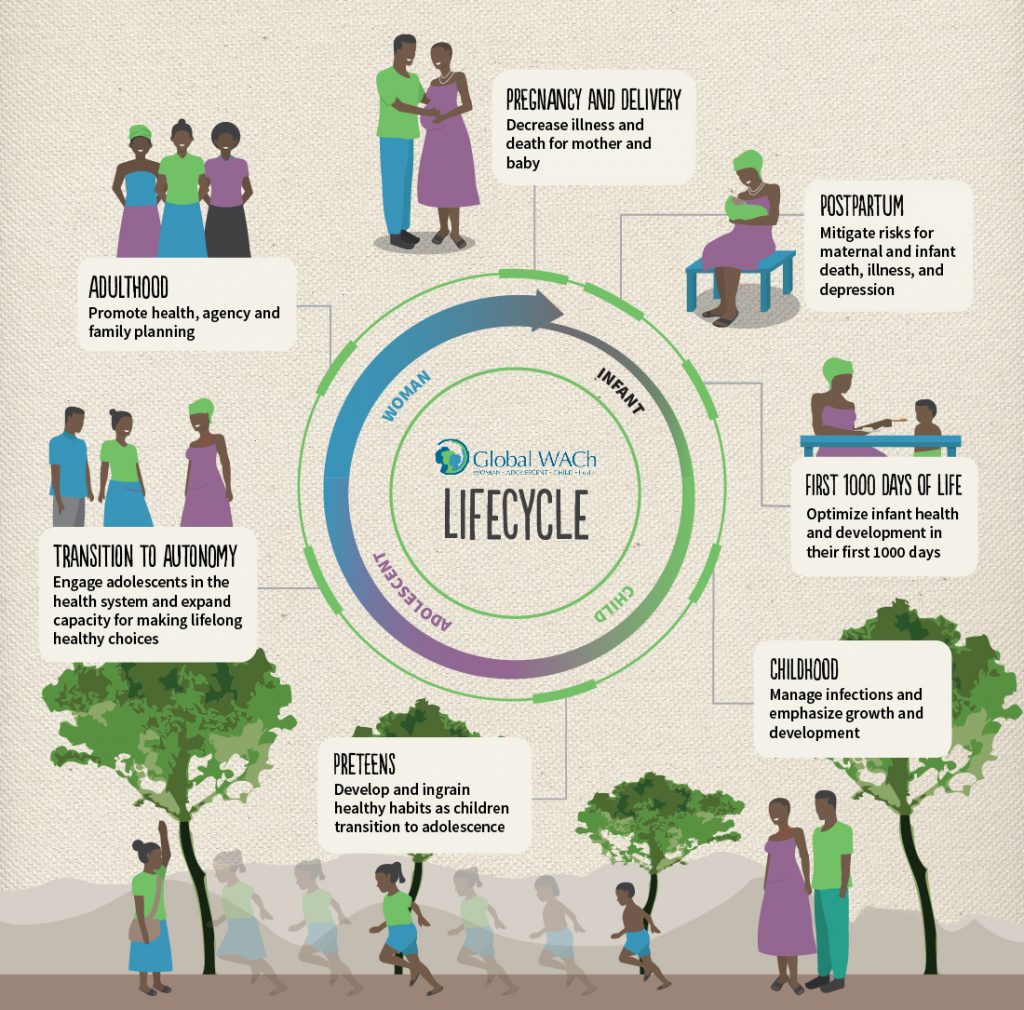Our Mission
We make scientific discoveries, cultivate leaders, and bridge disciplines to advance the tightly connected health and well-being of women, adolescents, and children.
Global WACh was created in 2012 to break down the traditional silos between departments and capitalize on the benefits created when multiple disciplines approach a topic with the same end goal in mind. Maternal health expertise from the Department of Obstetrics and Gynecology, neonatal and child health expertise from the Department of Pediatrics, and vast experience working in infectious disease, health evaluation, education, clinical research, and service delivery within the Department of Global Health all combine to create a perspective that views women, children, and adolescents not as three independent populations but as interconnected through the lifecycle.
Our approach focuses on critical windows — during birth and infancy, during the transition from childhood to adolescence, and from adolescence into adulthood — where healthcare interventions can have long-term benefits across the lifecycle.
